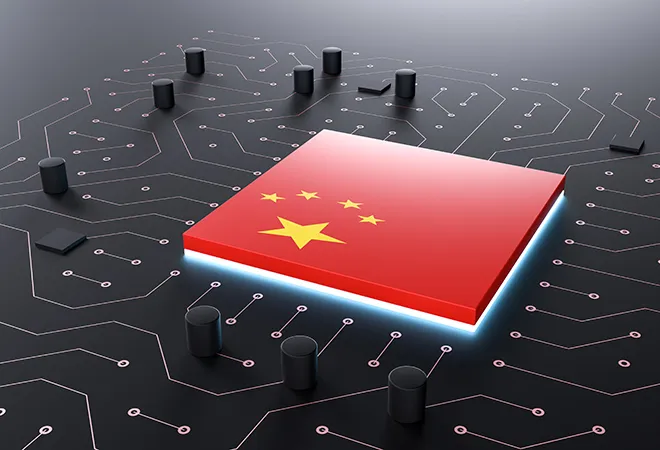After vowing to ban short-video app TikTok from the United States, President Donald Trump has made it clear that he has no intention of stopping just yet when it comes to putting pressure on Chinese tech companies. Even as he has ordered TikTok’s Chinese owner ByteDance to divest the US operations of TikTok within 90 days, he has indicated that he is ready to exert pressure on more Chinese companies such as technology giant Alibaba.
His administration has also expanded restrictions on Huawei by not only tightening access for the Chinese telecommunications giant from obtaining semiconductors without a special licence, but also adding 38 Huawei affiliates in 21 countries to the US government’s economic blacklist. With China making it clear “it will continue to take all necessary measures to safeguard the legitimate and legal rights and interests of Chinese companies,” there is every indication that the US-China technology conflict has only just begun and this rift will continue to widen in the coming months, with serious consequences not only for the two major powers but for the global technological landscape as well.
From the origins of Covid-19 and trade tariffs to South China Sea, Xinjiang, Hong Kong and Taiwan, the US and China are at loggerheads on conceivably every single issue on their bilateral agenda. But it is technology which is today defining great power contestation in ways few could have envisioned just a few years back.
Emerging technologies such as 5G, AI, nanotechnology and robotics are becoming ever more integral to the way major powers of today perceive their geopolitical and geoeconomic agendas. And more than ever before, these powers today seem willing to use these new technologies for leverage to enhance and preserve their power and to shape geopolitics.
The present predicament imposed by the Covid-19 pandemic has accelerated this trend, as exemplified in the American response. US secretary of state Mike Pompeo has suggested that the Trump administration is “protecting Americans’ most sensitive personal information and our businesses’ most valuable intellectual property – including Covid vaccine research – from being accessed on cloud-based systems run by companies such as Alibaba, Baidu, China Mobile, China Telecom and Tencent”.
But Washington’s response goes way back. It was in May 2019 that Trump signed an executive order that foreshadowed the growing role national security issues were likely to play in rejigging the bilateral US-China matrix by choking off all ICT trade and technology transfers between the two. Pompeo articulated the underlying political argument much more cogently in a speech in Silicon Valley earlier this year in January, when he called upon American technology firms to “honestly confront tough questions about the national security consequences of doing business in a country controlled by the Chinese Communist Party” and to ensure “American technology doesn’t power a truly Orwellian surveillance state”.
This fits well with Trump’s economic agenda, which is suspicious of a tech supply chain heavily centred in China and wants to build US manufacturing capabilities. As a result of the actions being taken by the US, the technological decoupling is no longer a matter of debate.
It is happening; what is contested is the scale, scope and the costs inherent in the process. For China, which has long been using its tech firms to sustain its national security imperatives, this is a moment of reckoning as taking its cue from Washington, other nations too are fast catching up to this high technology contestation. For a country like India, which otherwise would have been cautious in taking on Chinese tech, Beijing’s aggression across the LAC has clarified the choices it needs to make.
Costs are inherent when technological supply chains decouple from China, resulting in a fragmentation of the global economic order. But it seems clear that most powers are willing to bear those costs at the moment as the veneer of China as a responsible global stakeholder dissipates. As Xi Jinping’s China continues to challenge the extant global order with a ferocity few had expected till recently, technological decoupling is being viewed as a necessary part of a wider strategy to manage Beijing’s aggression.
Technological advancements have always played an important role in geopolitics. But today technologies related to the Fourth Industrial Revolution are central to the emerging geopolitical landscape with nations looking at their potential through the national security lens. It is this contestation that will shape not only the emergence of the next generation of technologies but also the course of global politics in the coming years. As the world passes through a phase of unprecedented technological transformation, geopolitical competition among the world’s two most important powers is only likely to become more pronounced.
India, too, is fast becoming a part of this contestation, not necessarily because it wants to but largely because Chinese actions have left it with very few options. Even as New Delhi charts an ambitious course in restructuring its own domestic technological base, it will need global partnerships to enhance its technological edge which increasingly will have serious economic consequences.
In a world fragmented by the geopolitical contestation between the US and China, India will have to adopt measures which will impose some short term costs. But if recent measures are anything to go by, New Delhi seems prepared to bear those costs, hoping that in the long term this will lead to a more substantial foundation of technological capabilities. As geopolitical contestation intensifies, the choices are shrinking rapidly and the time for decisive measures is now.
This commentary originally appeared in The Times of India
The views expressed above belong to the author(s). ORF research and analyses now available on Telegram! Click here to access our curated content — blogs, longforms and interviews.




 PREV
PREV


